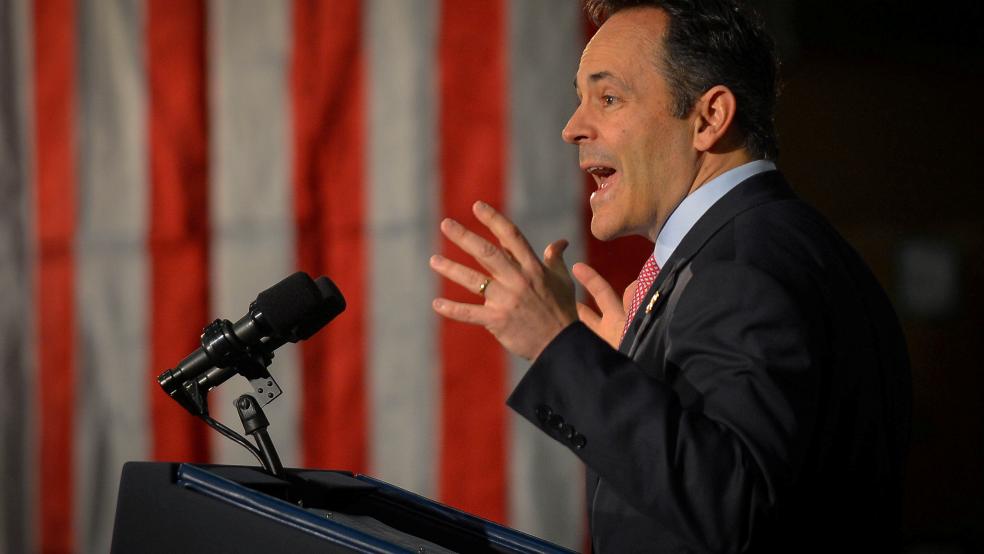The effort to impose work requirements on Medicaid beneficiaries experienced a setback Tuesday with the apparent defeat of Kentucky Gov. Matt Bevin.
Bevin, a Republican, hasn’t conceded defeat in his reelection race, but he trails his Democratic opponent, Kentucky Attorney General Andy Beshear, who has declared victory. Beshear made the elimination of Medicaid work requirements a central part of his campaign and said Wednesday that he would rescind them as soon as he takes office.
The background: Medicaid expansion provides health coverage for about 400,000 Kentucky residents. In 2018, the Trump administration gave the state the first federal waiver to allow work requirements for Medicaid beneficiaries, though legal challenges have prevented the new rules from taking effect. At the time, Bevin said the work requirements were long overdue, even though they would result in an estimated 95,000 state residents losing their health insurance. Like many supporters of work requirements, Bevin said they were designed to cut costs and to help Medicaid enrollees personally. “There is dignity associated with earning the value of something you receive,” he said.
The political lesson: Bevin nationalized his campaign, tying himself to President Trump, so it’s hard to tease out just how much his loss might be about national politics or state issues like Medicaid expansion. Still, political observers suggest Bevin’s unpopularity — compared to Trump, who remains popular in Kentucky — is rooted in the position he staked out on Medicaid along with his push for pension reforms that cut retirement benefits for new teachers and funding for public schools, sparking teacher protests.
Joan Alker, director of the Center for Children and Families at Georgetown University, said Wednesday that Medicaid expansion in Kentucky has been popular, in part because it covers 40% to 50% of adults in rural areas in the state. “This continues a trend we have seen in recent elections where Medicaid has a lot of support at the ballot box across political parties,” Alker told The Hill. “It’s really remarkable how important Medicaid expansion has become as an issue in red states. And the voters want it.”
Bevin’s effort to cut Medicaid was likely a problem for him with some portion of Kentucky’s rural voters, which may have been the difference in an extremely tight race. “As it turns out, when the governor slashes social programs in one of the poorest states in America, voters don't want to re-elect him,” Alex Wagner, a contributing editor at The Atlantic, said Wednesday.
Mixed messages elsewhere: Medicaid expansion was part of the electoral mix in two others states Tuesday. In Virginia, where Medicaid expansion passed last year, voters gave control of the legislature to Democrats, which could result in Democratic Gov. Ralph Northam withdrawing or freezing a pending request to impose work requirements on beneficiaries. In Mississippi, voters appeared to reject Medicaid expansion, electing Republican Tate Reeves, who ran against it on “philosophical grounds.”




